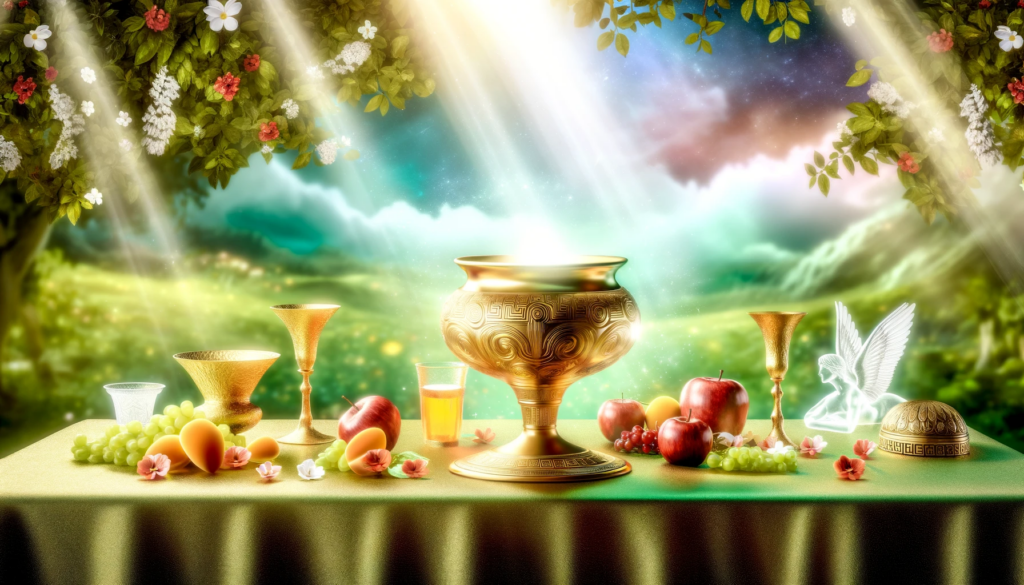Ambrosia has several different meanings in today’s world. Not only is it a dessert salad made of fruits and marshmallows, but it’s also a word used to describe delicious food. Ambrosia’s origins, however, are rooted in Greek mythology.
Ambrosia: A Nymph That Turned Into Food
According to Greek legend, in the beginning, Ambrosia was a wood nymph. Unfortunately for her, Lycurgus of Thrace clashed with the wine God Dionysus. The poor nymph got caught in the middle of the fray, died, and then transformed into a vine.
After the change, so the story goes, doves carried the delicious ambrosia “vine food” to the gods on Mount Olympus.

A Honey-Like Food For The Gods
After transforming from a nymph into a victual-producing vine, ambrosia became one of the gods’ two favorite foods. The other was nectar.
For years, scholars were split on whether it was a liquid beverage or solid food. Confusion arose because stories from the time described the delicacy in different ways. For example, Homer typically characterized ambrosia as a morsel of food. However, in the ancient Greek play Knights, the comic Aristophanes said, “I dreamed the goddess poured ambrosia over your head—out of a ladle.”
These days, however, historians who concentrate on Greek mythology are reasonably confident that the ancient delicacy of the divine had the consistency of honey.
Ambrosia: Easy On The Nose
Not only did the Greek gods feast on ambrosia, but they also used it as a strong perfume. Take, for example, Menelaus and his men in the Odyssey: They disguised themselves in seal skins to evade detection. Unfortunately for the soldiers, the “deadly smell of the seal skin vexed” their senses. So, to help out, a goddess bearing ambrosia descended from the heavens. The men slathered it on themselves and the ambrosia’s scent successfully overpowered the seal stench.
Whether a solid food, drink or perfume, the substance played a prominent role in Greek literary history and mythology.
Facts Summarized
- Transformation from Nymph to Divine Substance: Originally, Ambrosia was a wood nymph who, after a tragic involvement in a conflict between Lycurgus of Thrace and Dionysus, was transformed into a vine. Effectively marking her transition from a mythological figure to a divine element.
- Dual Nature: Ambrosia’s dual representation as both a solid food and a liquid beverage in ancient texts reflects the versatile nature of divine sustenance in Greek mythology. Embodying the gods’ multifaceted relationship with their sacred foods.
- Honey-Like Consistency: Modern scholars specializing in Greek mythology generally agree that ambrosia, much like its counterpart nectar, likely had a consistency similar to honey. Blending the lines between food and drink in divine consumption.
- Perfumery of the Gods: Beyond its role as food, ambrosia was also used by the gods as a potent perfume, capable of masking even the most unpleasant odors. This is illustrated in the Odyssey when Menelaus and his men used ambrosia to cover the smell of seal skins.
- Symbol of Immortality: Ambrosia is often associated with the immortality of the gods. Serving as a key element in rituals and stories that underscore the divine beings’ eternal nature and their separation from the mortal realm.
Link/cite this page
If you use any of the content on this page in your own work, please use the code below to cite this page as the source of the content.
Link will appear as Ambrosia – Ancient Greek Mythical Element: https://greekgodsandgoddesses.net - Greek Gods & Goddesses, October 21, 2019